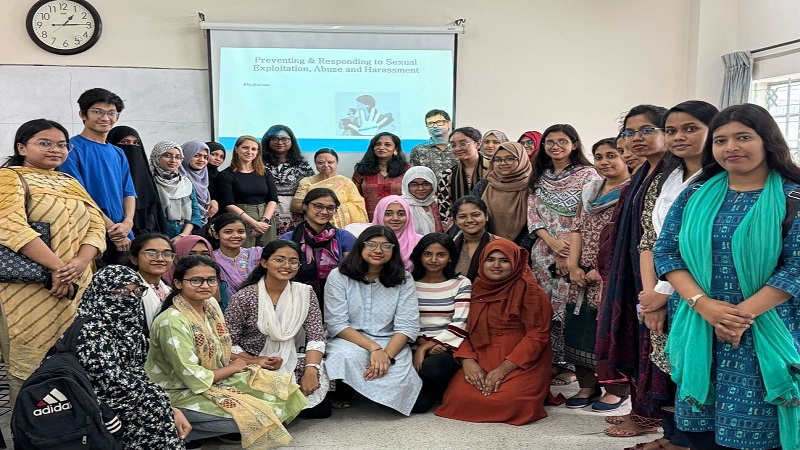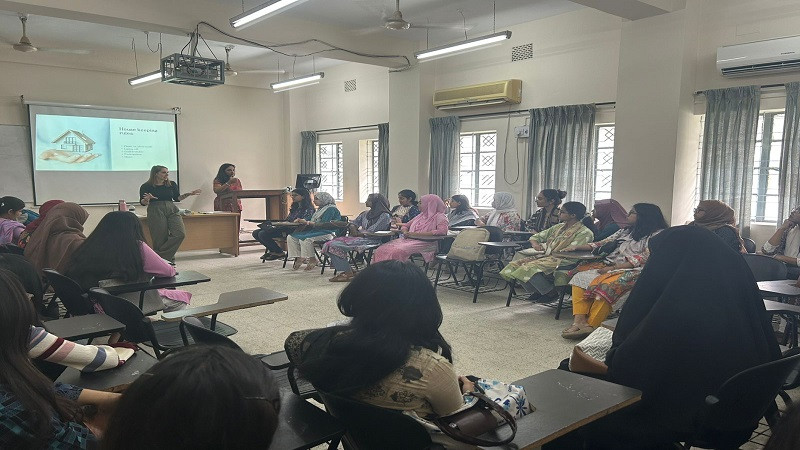
Sufia Kamal Seminar Series on Preventing and Responding to Sexual Exploitation, Abuse, and Harassment
As part of the Sufia Kamal Seminar Series, the Department of Women and Gender Studies, at the University of Dhaka, organized an insightful seminar on Sexual Exploitation, Abuse, and Harassment on 18 May, 2025. The event featured two distinguished speakers: Benedetta Cocco, Coordinator of the PSEA Network in Bangladesh, and Mahiratul Jannat, Senior Manager of Ethics and Compliance and Co-Chair of the Cox’s Bazar PSEA Network.
The seminar began with a compelling video on gender-based violence (GBV), which initiated discussions on power dynamics, societal roles, the distinction between acceptable and unacceptable behaviors, and the often-invisible power dynamics in professional settings. The speakers gave definition of gender-based violence, various types of GBV, causes and contributing factors, trends, and challenged the conventional notion that men are always the perpetrators, whereas women are the victims. The session emphasized on the impacts GBV can have, regardless of gender, and highlighted the importance of recognizing this complexity in prevention and response efforts.

In addition, the speakers clarified the key concepts - sexual exploitation, abuse, and harassment - enabling participants to distinguish between them and understand their manifestations in different settings. The importance of informed consent was highlighted, emphasizing the need for free, prior, and informed agreement in any interaction involving personal autonomy and dignity. A significant part of the discussion centered on the IASC Six Core Principles Relating to Sexual Exploitation and Abuse (2019), which provides a foundational ethical framework for humanitarian and development actors to prevent and respond to it. The speakers also stressed on the consequences of abuse, ranging from physical harm to psychological trauma and social stigma, in the context of Bangladesh. Seven case studies illustrated various forms of sexual exploration, abuse, and harassment, sparking meaningful discussions on how to recognize abuse, and what practical steps can be taken to address and prevent it in institutional and community settings. The historical context of sexual exploitation, abuse, and harassment in humanitarian settings was also presented, alongside global PSEA (Prevention of Sexual Exploitation and Abuse) commitments and mechanisms.
The speakers and faculty members of the department wrapped the seminar discussing the procedures for reporting, available psychosocial support, and survivor-freindly approaches, empowering participants to take informed action if faced with such situations.